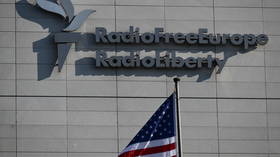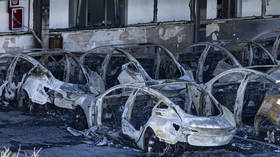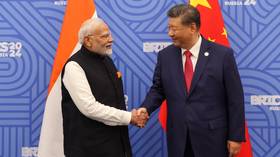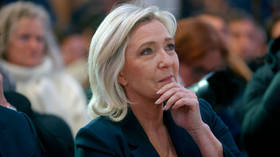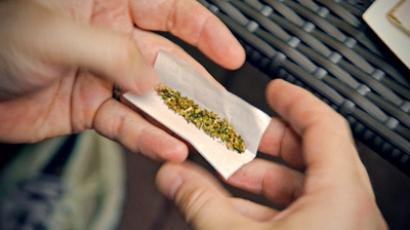Afghanistan alone can’t curb world demand for opium – anti-drugs minister
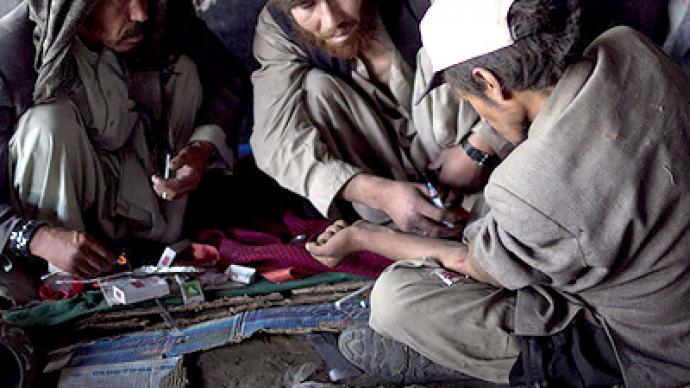
Booming opium production in Afghanistan is due to high international demand, and years of war and destruction, says the Afghan anti-narcotics minister Zara Ahmed Muqbel. The government needs international help to deal with the problem.
The minister spoke to RT about the situation.RT: Let’s start with the statistics of the production of poppies in Afghanistan. Many assume that Afghanistan produces opium in huge amounts and exports it to other countries. From your point of view, how can you tackle this problem?Zara Ahmed Muqbel: First, I welcome you to Afghanistan. There’s no doubt that the area of plantations sown with narcotic crops has increased since military hostilities started in Afghanistan. I believe that the war was the root cause that forced Afghan people to turn to poppy growing. This is the source of most problems Afghanistan faces today.The Afghan government has pledged to put an end to opium production in the country. If we study the history of drugs production, how it spread in Afghanistan and what degree it has reached, you will learn that about 215 hectares of farmland contain poppy crops. But thanks to the efforts of the democratic Afghan government, which I consider to be quite successful, we’ve managed to cut that area to 130 hectares.This year the government intends to further reduce the areas sown with poppies so as to fully meet its commitment to destroy poppy cultivation. But we will be unable to solve this problem once and for all on our own. We will need people’s support.In other words, we should not be focused only on the question of poppy cultivation. It’s an international problem, and not just the problem of growing poppies in Afghanistan. For example, we recognize that poppies are cultivated in Afghanistan. But then the question arises: in what way about 1,300 tonnes of chemical substances necessary for processing opium into heroin illegally get into Afghanistan via other countries.Another example is that the world consumes 95 per cent of Afghan-produced opium by contraband, while opium consumption in Afghanistan accounts for just 5 per cent. This proves that not only Afghanistan, but the whole world, should declare war on these narcotic substances. Over the past six years, the Afghan government has managed to reduce areas of poppy crops to 43 per cent. In doing that, we almost stopped sowing poppies in seven Afghan provinces; more than 20 other provinces are fighting to destroy them. I would also add that we’ve worked out a plan to put an end to sowing poppies in several provinces. This year, as part of efforts to implement this plan, we intend to further reduce areas of poppy fields. It doesn’t mean that we don’t have difficulties. As I said earlier, I am against drugs. It’s not just a problem for Afghanistan. This is an international problem. The world community should realize that. It should analyze the situation in Afghanistan with an aim to organize a campaign against drugs in this region and elsewhere in the world. If we consume 5 per cent of drugs, then where does the 95 per cent go? For example, if we manage to cut internal demand, what should be done to decrease the constantly-growing world demand for drugs?Therefore, we believe that any success in fighting this evil is closely linked to international co-operation and support. Afghanistan doesn’t have enough ability to treat drug addicts. We can help only one per cent of all drug-related patients.As the anti-drugs minister, I admit that I face many tasks. I realize that I have responsibilities with regards to the people of Afghanistan and their demands for compensation to Afghan landlords who give up poppy cultivation.Chemical imports are an even bigger problem. The total amount of profit from the drugs trade amounts to about $65 billion a year. All of them go to the international drugs mafia. The sums received by local drug smugglers barely get three per cent from that sum. In view of the expenses for poppy cultivation in Afghanistan, we see that profits from this trade are miserable. The international drugs mafia gets the bulk of the profits. RT: There is one concept that connects somehow the presence of the international forces in Afghanistan with drug trade. Now there is talk of the possible withdrawal of international troops from Afghanistan. Do you think after the withdrawal the situation with drug fighting will improve?ZAM: If we look at these things objectively, we’ll see that the situation after the war has improved. However, the Afghans don’t feel that. A great deal of preparatory work is to be done. It’s necessary to train the Afghan police and army to fight drug trafficking. Now we are going through the post-war period.But I assume that everything that we do in this area brings positive results every day. I can claim that, in recent years, the Anti-Drugs Ministry has achieved concrete, positive results. We’ve detained many drug traffickers this year; many more than in previous years. The professional training of Afghan police and army personnel has also improved. If things continue this way I am sure that, by 2014, we will be able to control the entire territory of Afghanistan.I would like to emphasize one thing: under no circumstances is the Afghan government going to wage a war against its own people. We operate under the motto of “struggle against terrorism, extremism and drugs”.We see that, in our condition, foreign aid has turned out to be pernicious for many Afghans; a considerable part of the country’s infrastructure has been destroyed. It should be added that a sharp change in the specialization of agriculture is closely linked to foreign factors. Perhaps you can see it yourself that drugs production flourished in the period of the most-intensive military hostilities, which led to serious disruptions in security as well as law and order. As a result, the illegal sowing of poppy crops increased.That is why we count on the co-operation of the world community in the struggle against this evil and we won’t lay the blame solely on Afghans. The Afghans are people who want to live in compliance with the law. But today, they want to use the benefits of peace in the first place. We are now facing the most terrible consequences of the war against terror. We witnessed the destruction of Osama bin Laden that took place near a military base in Pakistan. All this should be subject to a more profound analysis. Such issues shouldn’t be tackled superficially.RT: A joint Russian-American-Afghan anti-drugs operation was carried out several months ago. Is it possible to expand such operations in future? And how do you assess your ministry’s co-operation with the Federal Drugs Control Service of Russia?ZAM: At this moment, we are trying to strengthen our law enforcement, primarily the Afghan police which is predominantly in charge of destroying poppy crops. As I said earlier, I assume that we’ve made great progress in this field. But more importantly, we exchange reconnaissance information. We discussed this question with Russia and are ready to build up co-operation with Moscow in this field. Jointly, we’ve worked out several mechanisms and are applying them in sharing special information. This information could help us to catch smugglers in and outside Afghanistan. In this we rely on help from countries which have experience in this field.



